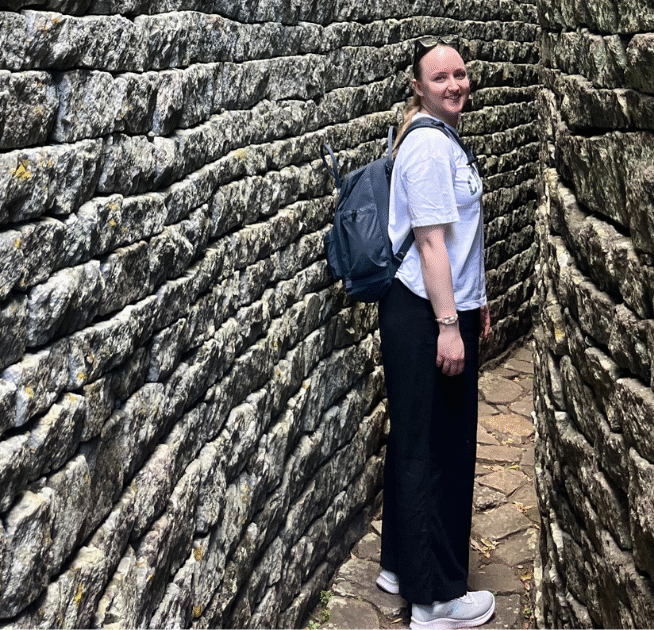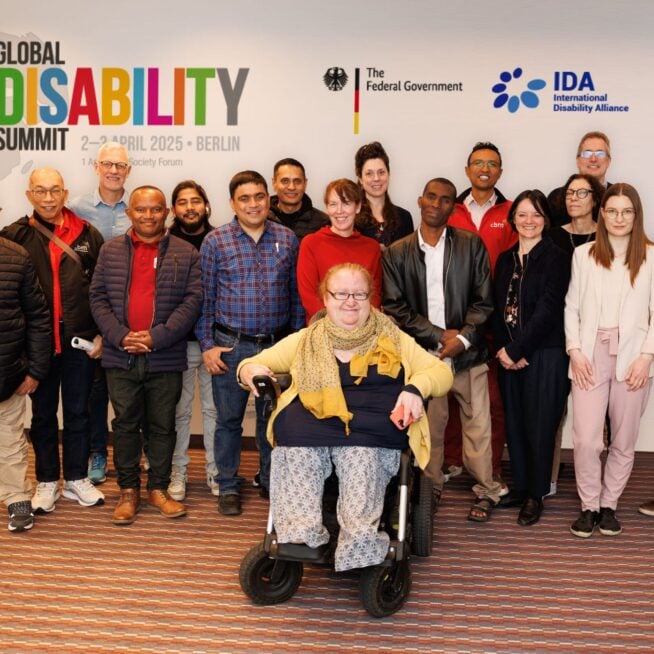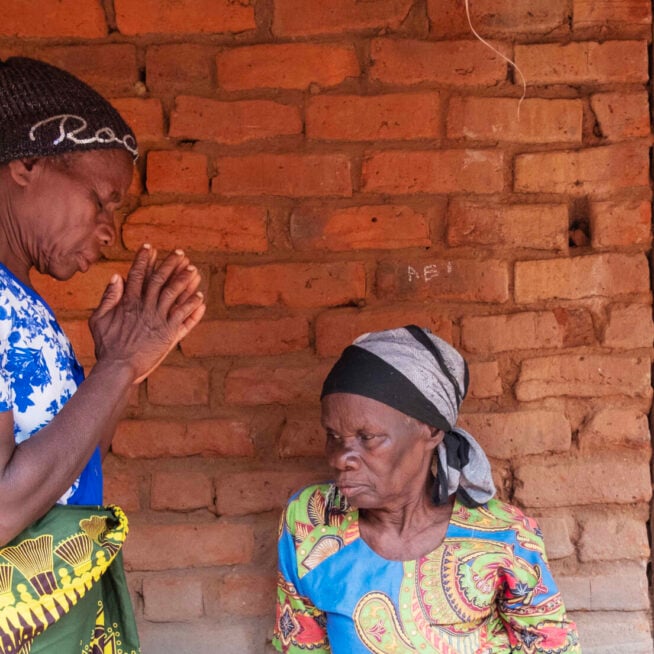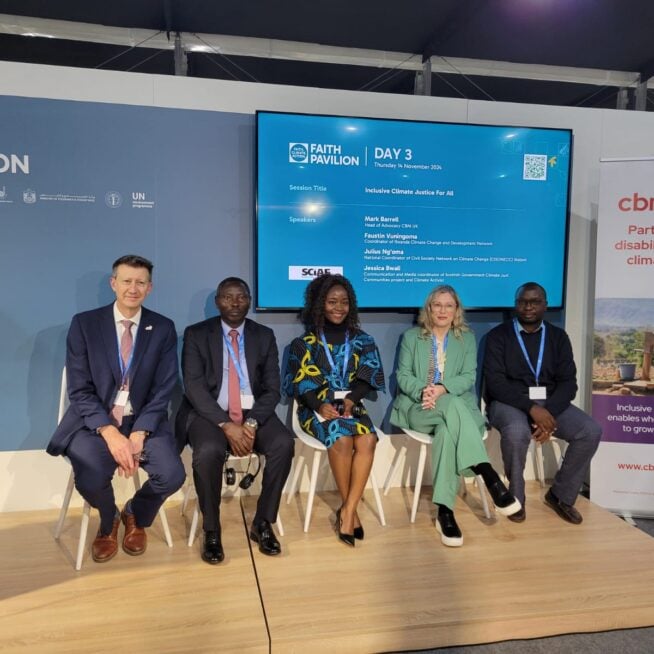Want to transform lives with us? Stay in touch and hear about our news, activities and appeals by email!
“Not fear but hope” – what do the outcomes of COP26 mean for more inclusive climate justice?
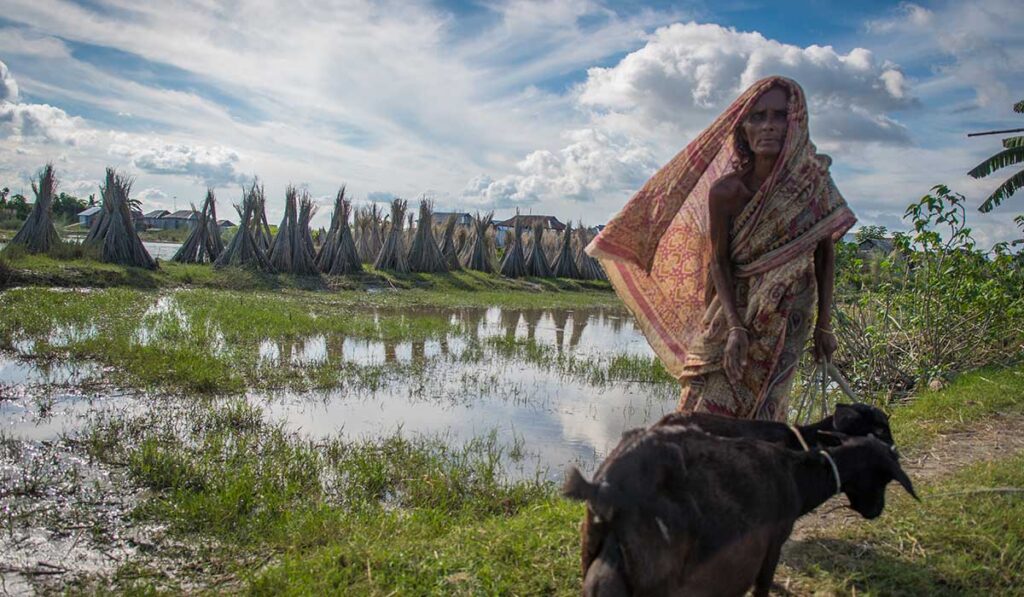
After two weeks of intense negotiations, COP26 came to an end with something between a whimper and a bang. It may have felt from the media coverage that the Glasgow conference was more about high profile visits of politicians and celebrities than about the urgent need to address climate change. But there was significant progress at this 26th meeting of the Conference of 197 state parties – nations that in 1992 agreed to the United Nations Framework Convention on Climate Change (UNFCCC). This included a growing realisation of the need for people with disabilities to be included and engaged in climate response. CBM UK was present throughout the event to amplify the voice of our partners across the globe in highlighting the need for people with disabilities to be a meaningful part of the journey to climate justice. While much remains to be done to achieve disability inclusive climate action, there is cause for hope.
Making inclusion a reality in climate action
People with disabilities, especially those living in poverty, are among those hardest hit by the climate crisis but least likely to have contributed to it. During the conference, I chaired a CBM UK event – An inclusive planet: Inclusion, mental health and climate change (YouTube – open in new tab) – which brought together a range of key stakeholders, including CBM partners and communities affected by climate change, to speak directly about the challenges.
Sibusisiwe Marunda, Director of Regional Psychosocial Support Initiative (REPSSI), Zimbabwe, described the key role that local organisations play in providing immediate response and mental health support to communities affected by climate induced emergencies. It is particularly important for Organisations of People with Disabilities (OPDs) to be at the table in climate change discussions “so that the advocacy messaging & advocacy action are informed by the lived realities of people with disabilities” and their expert knowledge drawn on in identifying solutions. Jose Viera from the World Blind Union gave powerful examples of locally led innovative adaptive solutions that have been effective in areas affected by climate change and CBM Global’s Julian Eaton launched a paper exploring the impacts of climate change on mental health and how to transform eco-anxiety into agency, into wanting to change the world.
It was fantastic to have representatives from the UK Government with us, including the Head of Disability Inclusion at the FCDO who later shared her appreciation of what was said. Channel 4 featured our event in their news (channel 4 website – open in new tab) coverage as they followed the irrepressible Ruben Reuter’s participation in the incredible show of strength by climate activists and his visit to the COP26 proceedings. It was exciting to see for the first time at COP a number of other discussions highlighting disability inclusion, including by Global Disability Innovation Hub (open in new tab).
COP President engages with 7 key recommendations on inclusion
CBM UK is an officially accredited “Observer” of COP by the UNFCCC enabling us to connect within the UN negotiation space to those making decisions. At CBM UK’s stall within the civil society space we engaged with Alok Sharma – the President for COP26 (Twitter – open in new tab) around the importance of disability inclusive climate action and shared with him seven recommendations in the inclusive climate action seven recommendations in the inclusive climate action briefing which CBM UK co-authored (open in new tab).
An inclusive COP is more than just improving access to the event
COP26 was promoted as the “the most inclusive COP ever”. The reality was far from the aspiration. Despite the increased numbers or organisations and networks represented, barriers including COVID, high costs and inaccessible remote access meant that very few people with disabilities or OPDs were present. Those who did attend in person found themselves stuck in lifts, unable to access the venue, or left without sign language interpretation. Those attending online encountered a virtual platform that was difficult to navigate, without captioning or signing, and with no potential to engage meaningfully, in any of the events or debates. CBM spoke into these issues through various channels including the BBC News and is now working with the UK Cabinet Office to try to ensure increased access at COP27.
The story of a State delegate being unable to access the venue made the headlines. The reality is that those who are forced to live in the most climate risk prone areas – including people with disabilities living in poverty – face physical, environmental, communication and attitudinal challenges on daily basis. Climate finance for vital adaptation, loss and damage needs to be made available to those whose lives are most affected, and their voices need to be included in identifying relevant solutions.
Cause for hope
Sir David Attenborough declared at the opening summit, “Our motivation should not be fear, but hope”. Is there cause for hope when the outcomes of COP26 were described by former Climate Change envoy John Ashton as “significant but not game-changing”? The disappointment at the lack of some of the hoped for commitments suggests that the Conference did not deliver the level of ambition and or speed of action needed to ‘keep 1.5 alive’.
Yet there is much to be hopeful about. The needs and capacities of people with disabilities are increasingly recognised as an integral part of climate response. The incredible show of strength by climate activists suggests that States will continue to face public anger and pressure and it is vital that as part of that messaging, we continue to press for climate action that takes into account and includes the voices of people with disabilities. Inclusive climate action means climate justice for all. Our role is to remind the Government as we prepare for COP27, so that the seeds of hope that have been planted will grow and multiply.
Image: A woman with visual impairment, standing in a village in Bangladesh, after south-Asian monsoon rains caused especially heavy flooding in 2017. ©CBM/Gonzalo Bell

